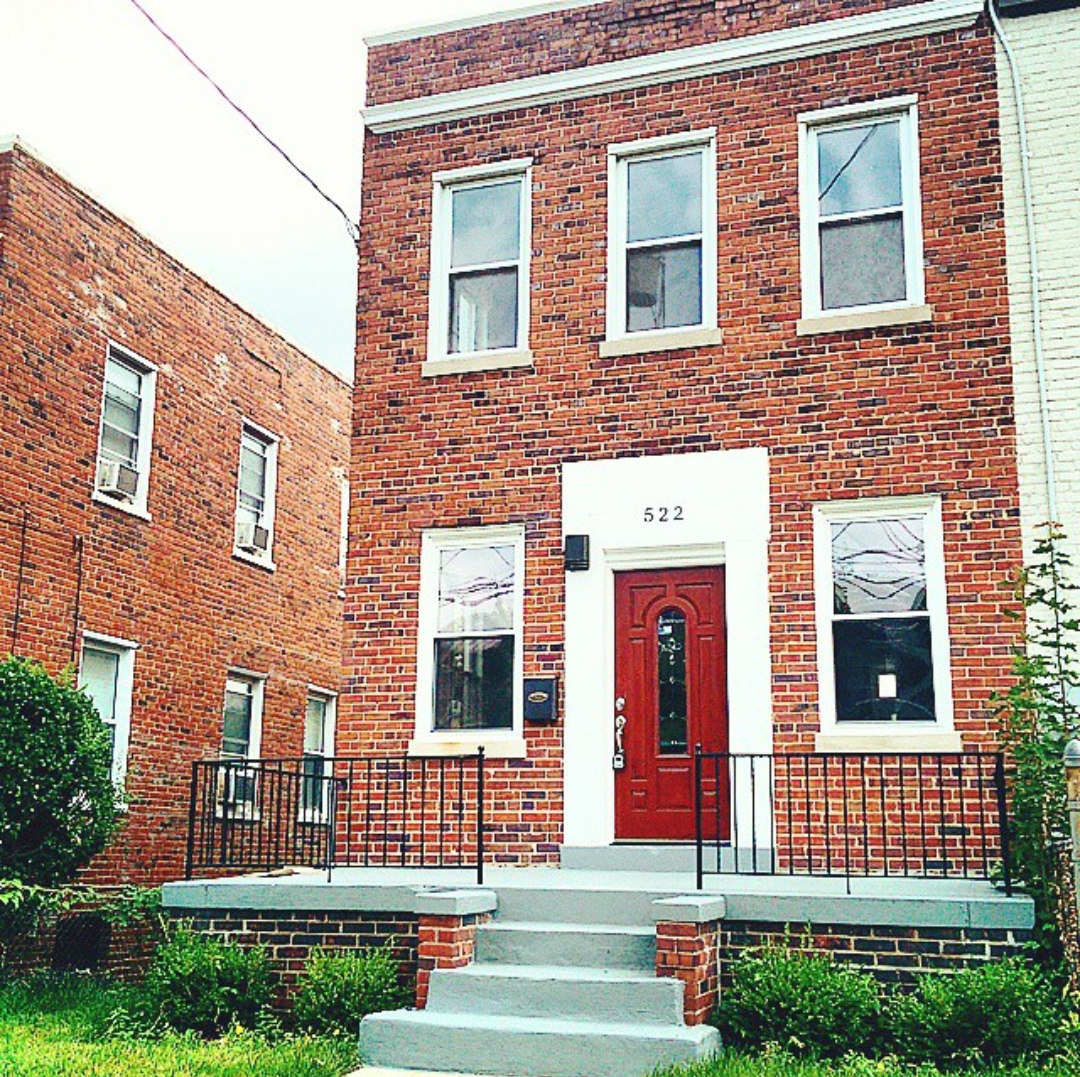 Around My Way: From the Stage to the Streets, Go-Go Artists Find Their Footing in Real Estate
Around My Way: From the Stage to the Streets, Go-Go Artists Find Their Footing in Real Estate
✉️ Want to forward this article? Click here.
DC's go-go music and culture has always had a close relationship with people and places in the area, even as the music and its fans have been battling displacement from their figurative and literal homes over the past two decades.
And some current and former artists have found their footing in the same real estate industry that the go-go industry and its participants occasionally are in tension with, tackling it with the same spirit of ingenuity that has defined go-go since its inception.

Lysette Titi, a singer/songwriter who performed as Backyard Band's female vocalist for almost 14 years (and has toured worldwide singing background for artists like Kelis and former go-go musician Meshell Ndegeocello), has been professionally staging homes since 2016. Titi had left Backyard in late 2014 and was looking to leave town for a fresh start and for new music opportunities, particularly because she couldn't go anywhere without someone stopping her to ask why she left the band or encouraging her to rejoin.
She had always loved interior design, and she got her start in staging after throwing a moving-out party (of sorts) in 2016 in her apartment on Fairlawn Avenue SE, where her guests, some of whom were developers and realtors, marveled at how her home was decorated. One guest recommended she reach out to Parker Interiors, where Titi ended up working for two years. She quickly rose the ranks from intern/assistant to lead stager before moving to Atlanta, where she worked for Designed to Sell, whose owner was on the board of a professional staging association.
In early 2018, a DC realtor saw her work on Houzz and offered her an opportunity to stage a house by herself on Hobart Place NW. By the time of the listing's open house, she had already signed two more clients; by the end of that year, she had so many properties on her plate that she had to start hiring staff.
story continues below
loading...story continues above

Now, her company The Singing Stager does work for some of the most recognizable real estate brokerages in the area, staging 6-8 homes per week. She has a staff of eight, and has a 4,000 square-foot warehouse in Rockville. The business has been such a success that she's able to run it while she works on her music and waits out the pandemic until she can start performing again.
Although Titi no longer stages all of the listings herself, the irony of her working in real estate and having a background in go-go is not lost on her.
"I was in the neighborhoods that I was hearing called out all the time, and there was this interesting awareness of just how my presence in this neighborhood is in their radio in the summertime, coming from their car, but my presence in the neighborhood is also helping a flipper push you out of here," she explains. "It was a very very strange place for me to be because I felt like I was straddling gentrification."
While she still acknowledges the affects of systemic racism on access to opportunity, she no longer thinks of displacement as an inevitable consequence of gentrification, as improving neighborhoods can lead to opportunities for long-time residents — and the work she does also creates jobs.

Jeffrey "Jammin Jeff" Warren, perhaps best known as a drummer for go-go bands Northeast Groovers (with whom he now performs occasional spot dates) and Familiar Faces/Still Familiar (with whom he still performs regularly), also tends to see his work rehabbing and flipping homes as improving his community.
Warren's family members all work in construction and trades, and his father always encouraged him to invest in real estate when he was playing with the Northeast Groovers in the early 1990s. However, it was an infomercial about real estate investing that caught his eye and inspired him to get started.
He purchased an investing course and ended up buying his first property in 1995, leading him to eventually build a portfolio of almost 50 single family home rental properties with his then-wife. He spent from 1996 to 2003 in and out of the go-go industry while continuing his real estate endeavors. By 2004, the rental business was wearing on Warren and he began divesting from rental properties and working on a rehab and flipping business, doing a lot of his earliest flips with family members.

While he stopped flipping for a while when the market crashed, he got back to the business in 2014. Most of the homes he rehabs now are in Capitol Heights, the neighborhood where he grew up and where people still know him.
"My thought was, let me change the area that I grew up," Warren explained to UrbanTurf. "I kind of know it like the back of my hand now, I've done it for so long."
To Warren, there's no dissonance between the different types of work he still does because house rehabs and go-go culture are both connected to the spirit of family and community and pride in your neighborhood -- that's what the 'Where y'all from?' call-and-response element of go-go represents.
"Go-go is more like a family, neighborhood thing...especially if you play in a band and you're from a certain area."
This article has been updated since publication to clarify Titi's staging operations.
See other articles related to: go-go, real estate investing, staging, staging homes
This article originally published at http://dc.urbanturf.production.logicbrush.com/articles/blog/from-the-stage-to-a-street-near-you-go-go-artists-finding-their-footing-in-/18083.
Most Popular... This Week • Last 30 Days • Ever

While homeowners must typically appeal by April 1st, new owners can also appeal.... read »

Navy Yard is one of the busiest development neighborhoods in DC.... read »

A significant infill development is taking shape in Arlington, where Caruthers Proper... read »

A residential conversion in Brookland that will include reimagining a former bowling ... read »

A new mixed-use development would bring hundreds of new residential units and a healt... read »
- How to Appeal Your DC Property Tax Assessment
- The Nearly 3,000 Units Still In The Works For Navy Yard
- A 15-Story, 310-Unit Development Pitched Off I-66 In Arlington
- Two-Year Extension Sought For Brookland Bowling Alley Conversion
- 590 Apartments, Health/Wellness Club Pitched For 3-Building Bethesda Development
DC Real Estate Guides
Short guides to navigating the DC-area real estate market
We've collected all our helpful guides for buying, selling and renting in and around Washington, DC in one place. Start browsing below!
First-Timer Primers
Intro guides for first-time home buyers
Unique Spaces
Awesome and unusual real estate from across the DC Metro













